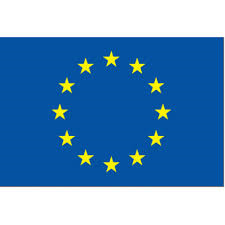The impact of the BioRECO2VER project is to provide an important next step in valorizing CO2, while at the same time offering alternative solutions for the production of chemicals.
The project goal is to create alternative processes for commercial-scale production of platform chemicals in a more sustainable way starting from industrial emissions of CO2. However, we still need to overcome some technical and economic barriers, from which biotechnological processes for CO2 conversion suffer. To name a few: gas pretreatment costs are still too high, gas transfer in the bioreactors is suboptimal, product recovery costs are still too elevated, and the scalability has not sufficiently been proven.
BioRECO2VER will resolve remaining barriers
In the new European Horizon 2020 project BioRECO2VER, a team of specialized industrial, academic and research partners will look into solving these challenges. BioRECO2VER wants to demonstrate the feasibility of more efficient biotechnological processes for the capture and conversion of CO2 from industrial point sources into the valuable platform chemicals isobutene and lactate.
To do so, the BioRECO2VER team will investigate among others a hybrid enzymatic process for CO2 capture from industrial point sources. The conversion of captured CO2 into the target products isobutene and lactate will be realized through 3 proprietary microbial platforms which are representative of a much wider range of products and applications. Bioprocess development and optimization will occur with both fermentative and bioelectrochemical systems. The microbial platforms will be advanced to Technology Readiness Level (TRL) 4 and the most promising process for each target product will be validated at TRL 5 on real off-gases.
International consortium combines industrial experience and academic expertise
The BioRECO2VER project was launched in January 1st and will run until the end of 2021 on a 7 mio EUR budget. The project will be coordinated by VITO (Flemish Institute for Technological Research). The other project partners are EnobraQ (France), Technical University of Luleå (Sweden), Syngip (Netherlands), IDENER (Optimización Orientada a la Sostenibilidad - Spain), CNR (Consiglio Nazionale delle Ricerche – Italy), Universitat de Girona (Spain), NOVA (Institut für politische und ökologische Innovation GmbH – Germany), Cementos Portland Valderrivas (Spain), Arkema (France), PKN ORLEN (Polski Koncern Naftowy ORLEN S.A. – Poland), and NatureWorks LLC (USA).


